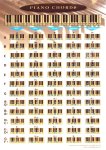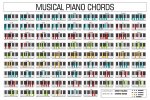KonKossKang
Ozagas


Found these a while back and also looked at band's scale chart.
Is learnin those nicknames[those are a lot of nicknames] gonna benefit or that doesn't matter?
The pictures show every note in the chords so... I mean...is that strictly just for terminology reasons?
Piano scales - learn how to play scales on piano too found that on google months back.
I can understand why sheet music is important though because that actually works better than saying the letter/numbers and that's only the letters number not the tempo/duration/nuances/how hard to strike each note etc sheet music makes more sense than that but the chord nicknames...eh.
